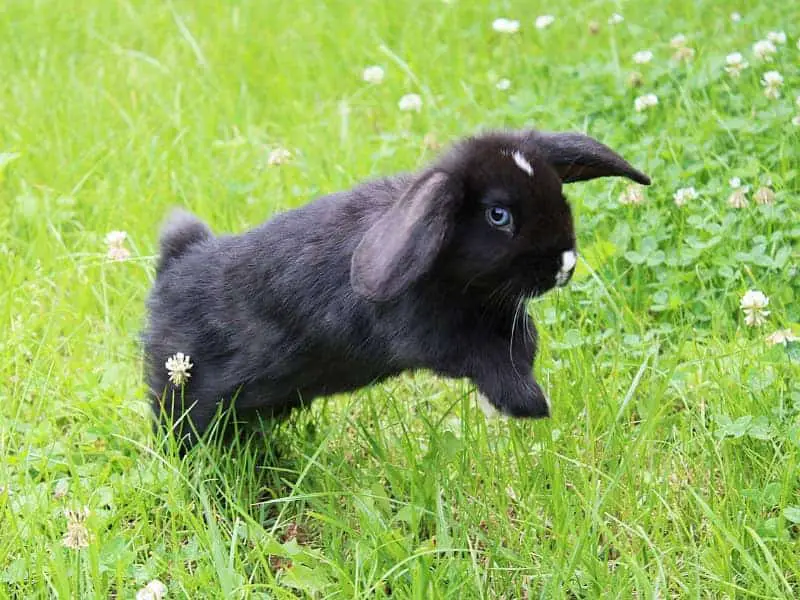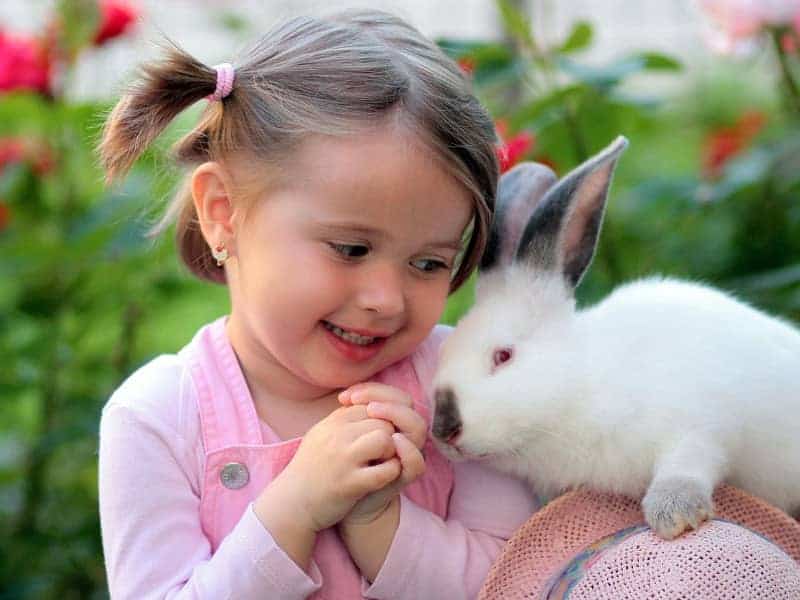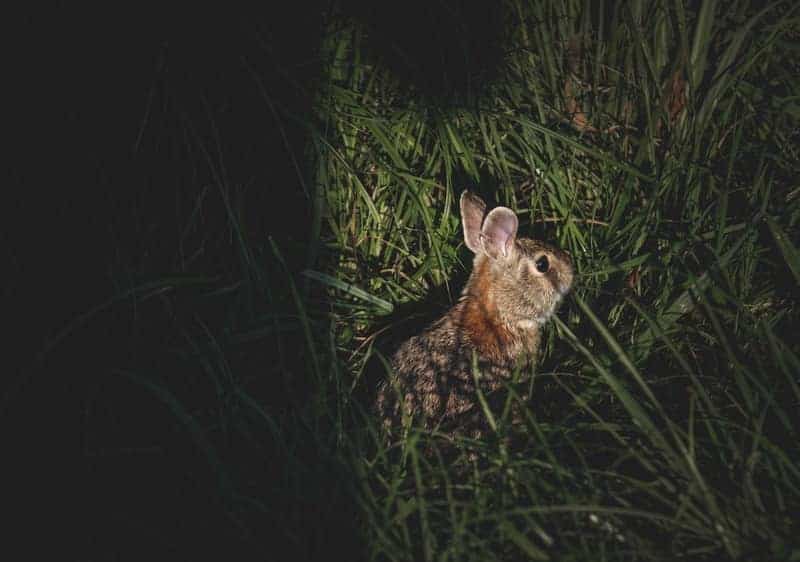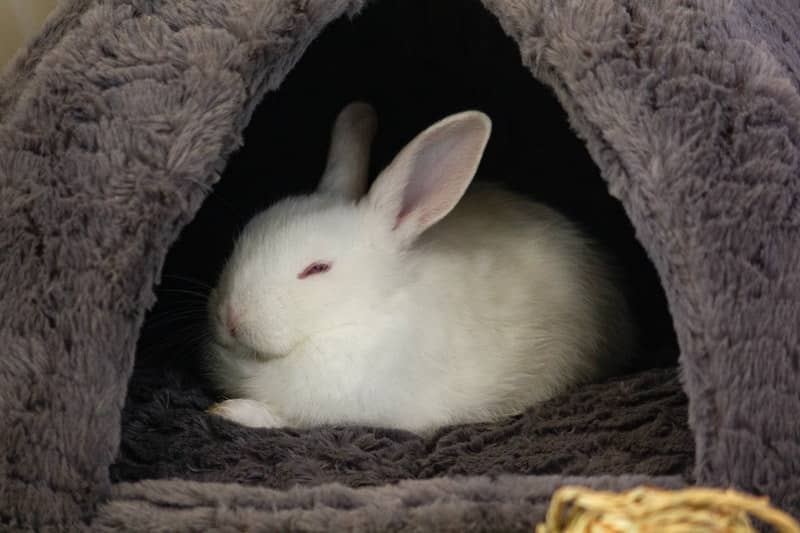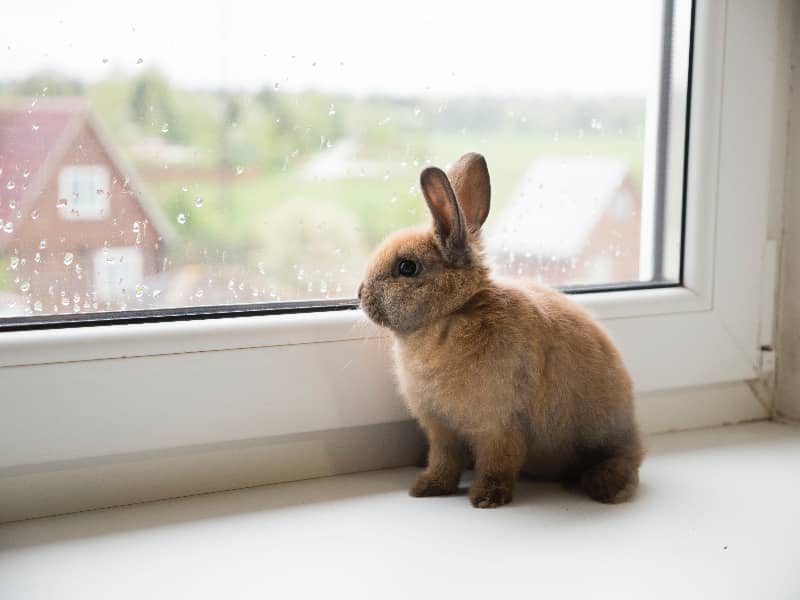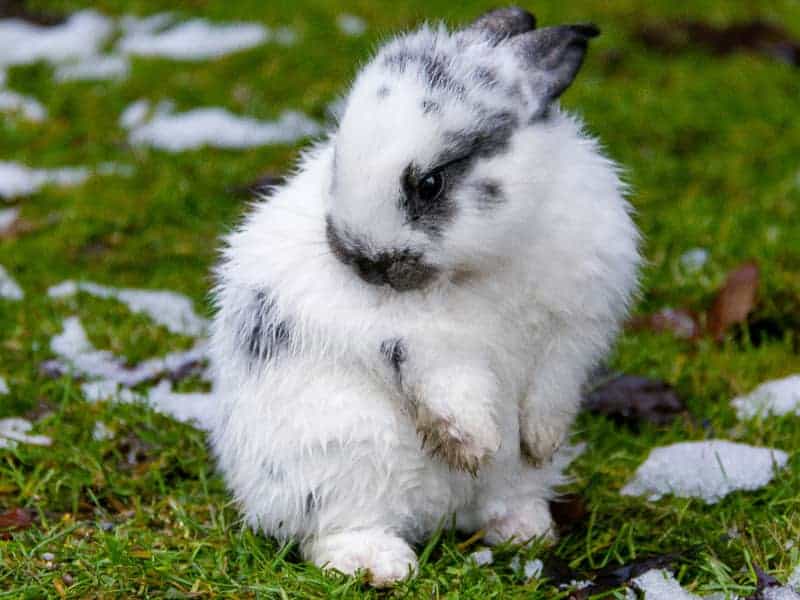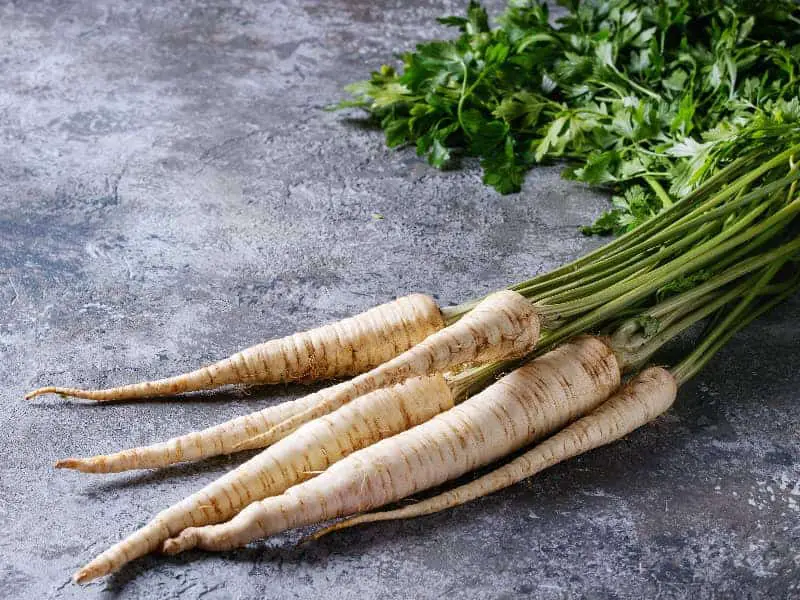
Are rabbits allowed to eat parsnips?
In the wonderful world of rabbits, there is a never-ending list of treats for these furry little friends to enjoy. You've probably seen your rabbit happily pounce on fresh vegetables. But not all vegetables are suitable for rabbits, so here we look at the question: Can rabbits eat parsnips?
- Are rabbits allowed to eat parsnips?
Important thoughts about rabbit nutrition
Before we address the question of whether rabbits can eat parsnips, we should briefly look at the importance of nutrition for rabbits. Rabbits have a sensitive digestive system that relies on a specific type of food. A balanced diet is crucial for the health and well-being of rabbits.
The main food source for rabbits is grass and hay. This not only helps with digestion, but also plays an important role in the health of their teeth. This can be supplemented with vegetables and some fruit. However, each vegetable and fruit has its own nutrient composition and not everything is suitable for rabbits.
Can rabbits eat parsnips?
Now that we have recognized the importance of a balanced diet for rabbits, we come to the real question: Can rabbits eat parsnips? The short answer is yes, they can.
Parsnips are an excellent source of fiber, which is very beneficial for the digestion of rabbits. They also contain important nutrients such as vitamin C, vitamin K and folic acid, which contribute to the overall health of rabbits. In addition, parsnips are low in sugar, making them a better choice than many other vegetables.
How often and in what quantity can parsnips be fed?
Although parsnips are healthy for rabbits, they should be given in moderation, as with any other vegetable. It is important to consider parsnips as part of a balanced diet and to combine them with other vegetables to ensure a variety of nutrients. Excessive consumption of parsnips can lead to gastrointestinal problems as it can disrupt the balance of the intestinal flora.
A general guideline is that one handful of vegetables per 2 kg body weight per day is suitable for a rabbit. Parsnips should only make up part of this handful. It is also important to introduce new foods into the diet slowly so as not to overload the digestive system.
Can dwarf rabbits eat parsnips?
Now we come to an important point: are parsnips equally suitable for all types of rabbits? It is well known that different breeds and types of rabbits have different nutritional requirements. Factors such as age, size and health status play a role here.
Dwarf rabbits, for example, are smaller and have a faster metabolic rate compared to larger rabbits. They therefore need food that is rich in energy and nutrients. But even for them, a balanced diet is key. It doesn't mean that they should eat more parsnips. Rather, they should be given a variety of vegetables, including parsnips, to ensure a balanced diet.
Are there any special precautions when feeding parsnips?
While parsnips can be a healthy snack for your rabbit, there are some precautions you should take.
Firstly, as already mentioned, the introduction of parsnips into your rabbit's diet should be gradual. An abrupt change in diet can lead to digestive problems. It is therefore best to feed small amounts at first and observe your rabbit's reaction.
Secondly, although parsnips are a healthy choice, they are not suitable to be your rabbit's main food. Hay should always be the main food, followed by a selection of different vegetables. Fruit and treats should only be given occasionally and in small amounts.
Thirdly, it is important that you wash the parsnips thoroughly before feeding them. This will remove any pesticides or other chemicals that may be on the surface of the vegetable and could be harmful to your rabbit.
Overall, it is always best to consult a vet if you are unsure about your rabbit's diet. He or she will be able to advise you on the best dietary practices for your particular rabbit.
The parsnip and rabbit dinner
With parsnips in your rabbit's diet, you are now a well-informed rabbit owner. It's always good to see you making an effort to make your fluffy little friend's life better and healthier. But there is one more thing we should talk about: The art of serving. Because preparing parsnips for your rabbit is just as important as knowing that they can eat them.
How do I prepare parsnips for my rabbit?
Preparing parsnips for your rabbit is actually quite simple. Start by buying fresh, good quality parsnips. Make sure they are free from mold and rot. Once you have your parsnips, follow these simple steps:
- Wash the parsnip thoroughly under running water to remove dirt and pesticides.
- Do not peel the parsnip. The skin contains many of the valuable nutrients and fiber. Just make sure that it is thoroughly cleaned.
- Cut the parsnip into small, bite-sized pieces. Always serve them raw, never cooked.
These simple steps should be enough to give your rabbit a delicious parsnip experience.
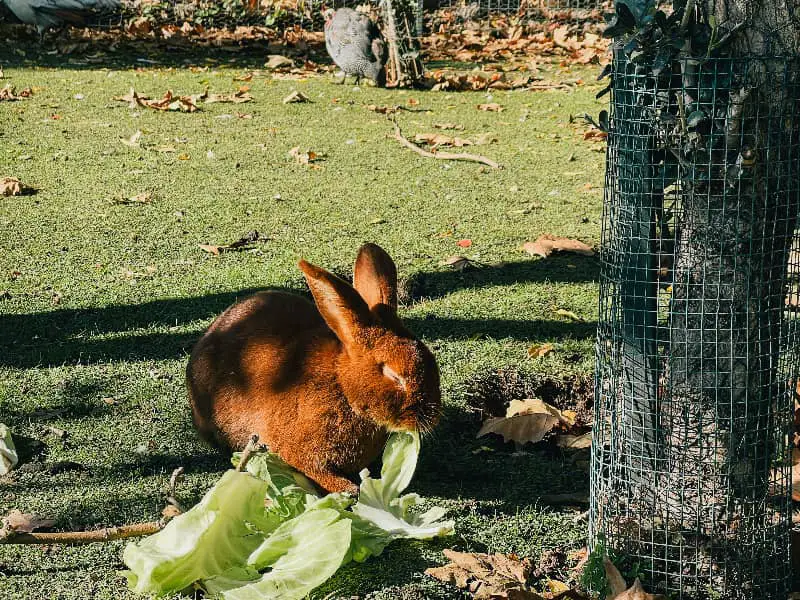
Vegetables that rabbits love
While we're focusing on parsnips, it's worth emphasizing that a varied diet is best for your rabbit. Different vegetables provide a range of nutrients that your rabbit needs. Here are some other great vegetables to serve your rabbit:
- Carrots: Although they can be harmful in large quantities due to their high sugar content, carrots are a healthy snack in moderation. They are rich in vitamin A, which is important for eye health.
- Broccoli: Broccoli is an excellent source of vitamin C and fiber. However, make sure it is given in small amounts as too much broccoli can lead to bloating.
- Fennel: Fennel is safe for rabbits and offers many health benefits, including improving digestion and boosting the immune system.
Always remember to introduce new foods slowly into your rabbit's diet and observe your pet's reaction.
Are parsnips also suitable for baby rabbits?
It is important to note that the diet of baby rabbits differs from that of adult rabbits. In general, baby rabbits should be fed mainly with milk from their mothers.
From the age of four weeks, you can start to introduce small amounts of hay and grass into their diet. From 2-3 months of age, vegetables can be introduced. However, at this age it is best to feed parsnips and other vegetables only in tiny amounts and monitor the young rabbit's reaction closely.
The importance of water for rabbits
While we are talking about rabbit nutrition, it is important to emphasize the importance of water. Rabbits should always have access to fresh, clean water. Even if they have a diet rich in moist vegetables, it is still important that they drink enough water to stay dehydrated.
Water plays a crucial role in the digestive system of rabbits and helps to keep the digestive system healthy. It also helps to keep the rabbit's body cool and contributes to healthy kidney and bladder function.
Overall, it can be said that water is just as important for rabbits as a balanced diet. So make sure that your rabbit always has enough water available.
Always keep the balance
It's tempting to focus on one type of vegetable when it comes to your rabbit's diet, especially when it comes to a vegetable as nutrient-rich as parsnips. But remember that variety is the key to a balanced diet.
Rabbits need a balanced mix of hay, grass, vegetables and water to stay healthy. Hay should make up the majority of their diet as it is rich in fiber and contributes to both dental health and digestion.
Vegetables, including parsnips, should be the next largest category in your rabbit's diet (approximately 15 %). A mixture of different vegetables will ensure that your rabbit gets a variety of nutrients.
Observe the rabbit's lifestyle
Your rabbit's diet will also depend on its lifestyle. Rabbits that get a lot of exercise may need more energy in the form of calories from vegetables and fruit. Rabbits that spend most of their time in a cage need fewer calories and should have a diet rich in fiber to avoid weight gain.
Health status and age also play a role in your rabbit's diet. Older rabbits and those with health problems may have special dietary requirements. In such cases, it is important to consult a vet.
The importance of fresh food
No matter what kind of vegetables you feed your rabbit, it is important that they are fresh and in good condition. Spoiled or moldy vegetables can be harmful to your rabbit's health and cause serious digestive problems. Therefore, always check that the vegetables are fresh before giving them to your rabbit.
Conclusion: Can rabbits eat parsnips?
In summary, it can be said that rabbits are allowed to eat parsnips and that they are actually very healthy for them. They contain valuable nutrients and fiber that can contribute to your rabbit's health and well-being.
But as with everything to do with nutrition, moderation is the key. Parsnips should be given as part of a varied and balanced diet that also includes other vegetables, hay and, if possible, fresh grass.
And remember that every rabbit's body is unique. What works for one rabbit won't necessarily work for another. Watch your rabbit carefully when introducing him to new foods and consult a vet if you have any concerns. After all, your little furry friend deserves only the best!
Author

-
Garden animal - A life with nature
Welcome to my animal blog! My name is Dirk and I am happy to take you on my journey through the fascinating world of animals and gardening.
Born 54 years ago, I have had an insatiable curiosity for the animal world around me since childhood. Although I have moved professionally in other industries, my true passion has always been animals and nature. It is remarkable how a small garden has become such an important part of my life.
Many of my fondest memories are associated with the animals that share our home. Whether it's the curious squirrels that scurry across the trees in the morning, the colorful variety of birds that visit our feeders, or the busy bees and butterflies that pollinate our flowers, every moment with them is invaluable to me.
This blog is my contribution to share my experiences, discoveries and insights with like-minded people. Here I will share stories of unforgettable encounters with animals, give tips on gardening and creating wildlife-friendly habitats, and take you on my journeys through nature.
Thank you so much for being here!
Cordial,
Dirk aka garden animal
Last posts
- 27. February 2024PetsVeganes Hundefutter – Grün und Gesund?
- 18. January 2024ChickensOregano für Hühner
- November 27, 2023HamsterDiurnal hamsters
- November 24, 2023HamsterHamster hammock

